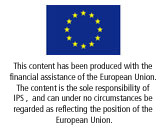By Hasan Tuluy *
Economic and social development has emerged as the twin pillars of Latin America’s strategy to create a more equitable, modern society.
After decades of struggling to find the right balance between growth and equality, the region has leape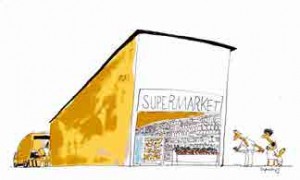 d forward, lifting more than 73 million out of poverty while increasing wealth, posting growth rates of four percent on average and becoming a source of stability in the midst of global uncertainty.
d forward, lifting more than 73 million out of poverty while increasing wealth, posting growth rates of four percent on average and becoming a source of stability in the midst of global uncertainty.
These tremendous gains, however, could be at risk if they are not made environmentally sustainable. To do so the region is grappling with the tradeoffs resulting from the need for continued growth to fight poverty and preserving natural resources for the productive use of future generations.
This is the essence of the inclusive green growth agenda.
Latin America and the Caribbean region (LAC) could become a victim of its own economic success. The region’s bonanza of recent years has led to explosive urbanisation, the world’s fastest growing motorisation rates, and a shifting energy matrix away from its cleaner hydro-power base.
LAC’s economic success is intimately tied to the generosity of nature. Over 97 percent of the region’s gross domestic product is produced in countries that are net exporters of commodities – oil, minerals, and agricultural products.
These resources could be significantly depleted in less than a generation if current rates of extraction continue unabated or if smarter farming techniques are not applied.
The good news is that the region stands at the forefront of some of the most innovative green practices in the world. It currently boasts the lowest carbon energy matrix of the developing world, the world’s most extensive Bus Rapid Transit system, and the first catastrophic risk insurance facility to enhance resilience against natural disasters.
It also has adopted payment schemes for preserving the environment, the likes of which helped turn Costa Rica into a global environmental icon and a paradise for eco-tourism after being the worst deforester in the region back in the mid 1990s.
Through its Amazon Region Protected Areas programme that covers an area the size of France, Brazil has achieved a four-year decline in deforestation rates.
At the urban level, Rio de Janeiro, host of next week’s Rio+20 United Nations Conference on Sustainable Development, is one of the region’s green leaders. The city is among the first in the world to implement a greenhouse gas emissions monitoring system.
It offers residents the second longest bicycle path in Latin America after Bogota. And through improvements to its suburban rail system, ridership has risen to levels that made subsidies unnecessary
- a savings of 121 million dollars per year.
The challenge now will be to maintain and expand these and other initiatives as LAC becomes more urbanised, its growing middle class aspires to a better life, and exposure to natural disasters increases.
That is what makes these times so critical. The region has the opportunity to choose a path that can lead to robust growth without locking it into an unsustainable development pattern.
Choices made now will define the future for decades to come in key areas such as infrastructure, energy and urban services, all of which are drivers of economic growth and define the quality of life for most of the people in the region who live in cities.
The region has a real opportunity to become a leader in adopting more efficient and climate-smart agricultural practices, as well as more efficient and greener modes of transportation of goods, such as railways and waterways, which are currently greatly underused.
Some may argue that pushing the South to adopt more responsible growth policies is unfair. After all, the rich world gave little thought to the environment as it created unprecedented levels of wealth, health and security.
Today, the United States is responsible for 18 metric tonnes of CO2 emissions per capita and Europe for 7.8 metric tonnes. The average Latin American emits the equivalent of 2.8 metric tonnes.
Still, I am convinced that regional leaders are far less concerned with pointing fingers than with making the right decisions today that will set the region and its peoples on a course for continued, sustainable prosperity.
* Hasan Tuluy is World Bank Vice President for Latin America and the Caribbean



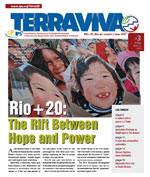
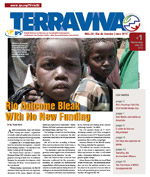
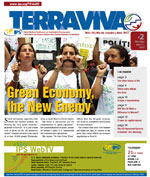

 Add to Google
Add to Google




